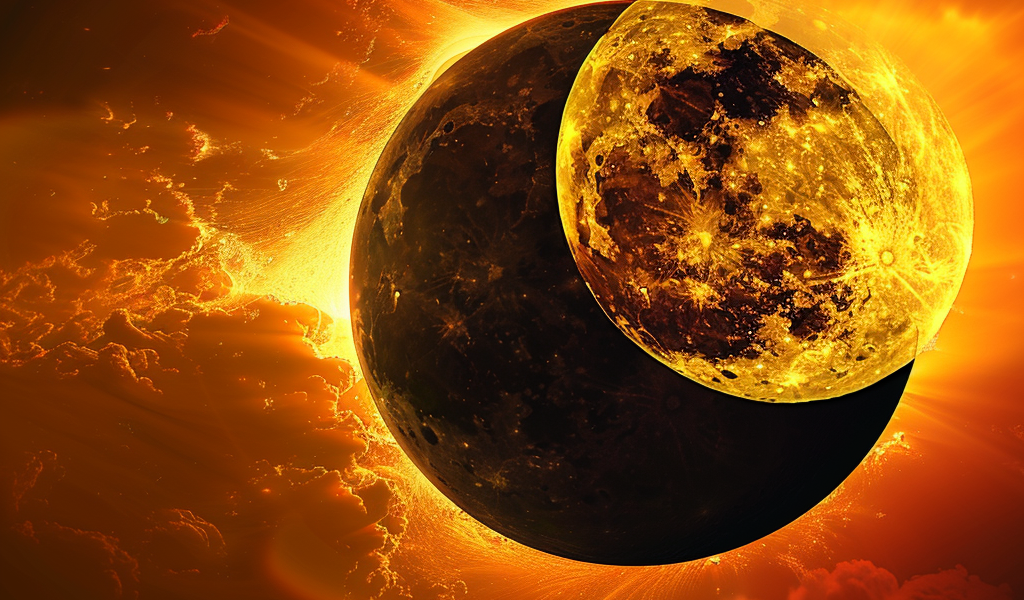The next solar eclipse is set to occur on April 8, 2024, marking a significant celestial event that will captivate millions of people across Mexico, 14 U.S. states, and southeastern Canada. This total solar eclipse comes six years, seven months, and 18 days after the previous one, which crossed the U.S. from Oregon through South Carolina on August 21, 2017.
During a solar eclipse, the moon positions itself between Earth and the sun, casting a shadow over our planet. This rare occurrence can only take place during the phase of the new moon, presenting a compelling sight for skywatchers.
Types of Solar Eclipse
Solar eclipses come in four different forms, depending on the alignment of the sun, moon, and Earth:
- Total solar eclipse: The sun is entirely obscured by the moon.
- Partial solar eclipse: The moon partially blocks the sun, creating a captivating visual as it appears to take a ‘bite’ out of the sun.
- Annular solar eclipse: The moon centers in front of the sun but does not cover its entire surface, resulting in a ‘ring of fire’ effect.
- Hybrid solar eclipse: This rare type is a combination of total and annular eclipses, transitioning from one form to another as the moon’s shadow moves across Earth.
According to SpaceEdge Academy, 28% of solar eclipses are total, 35% are partial, 32% are annular, and only 5% are hybrid.
Upcoming Solar Eclipses
Following the April 8, 2024 event, an annular solar eclipse is scheduled for October 2, 2024, offering another opportunity to witness this awe-inspiring phenomenon.
How to View the Sun Safely
It’s important to note that observing a solar eclipse requires special precautions to protect your eyes. To ensure safe viewing, utilize appropriate solar filters or viewers specifically designed for this purpose.
Future Solar Eclipses
As we look ahead, staying informed about upcoming solar eclipses can provide exciting opportunities for celestial observation. Whether it’s the anticipation of a total, partial, annular, or hybrid eclipse, these events continue to inspire wonder and fascination among enthusiasts and the general public alike.





